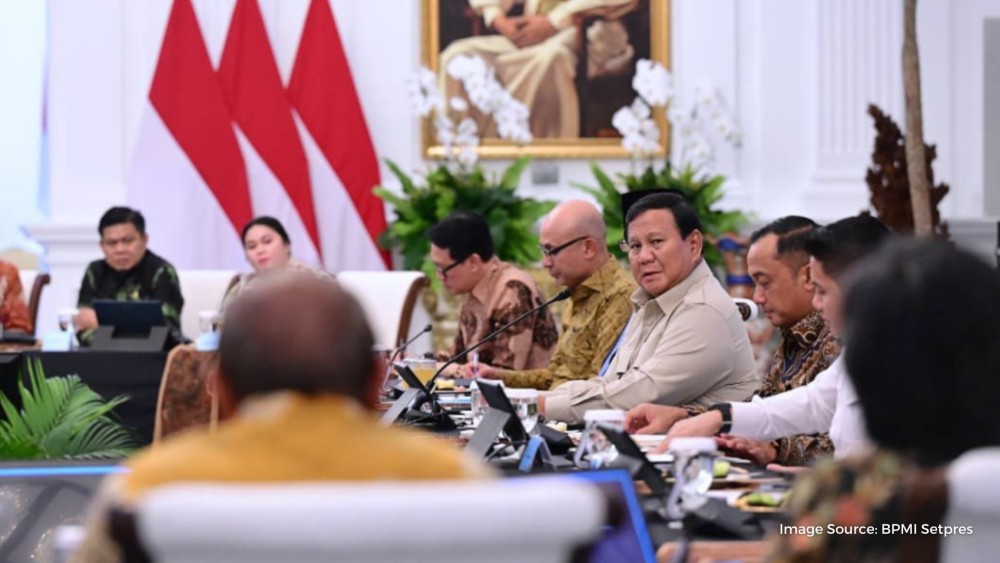Indonesia’s New Finance Minister Moves IDR 200 Trillion to Banks, Signals Budget Continuity
10 Sep 2025

Indonesia’s newly appointed Finance Minister Purbaya Yudhi Sadewa has announced plans to inject IDR 200 trillion (USD 12.15 billion) into the banking system while pledging continuity in the 2026 state budget process and maintaining fiscal discipline.
Purbaya, who replaced Sri Mulyani Indrawati in a cabinet reshuffle on Monday, told a parliamentary hearing on Wednesday that the government would transfer part of its cash balance at Bank Indonesia (BI) to commercial banks to ease tight liquidity and stimulate lending.
Because of slow government spending, the state’s cash balance at BI has risen to IDR 430 trillion. Purbaya said IDR 200 trillion of that would be placed in government accounts at commercial banks, forcing them to manage the funds more actively to expand credit. “I will put money into the economic system,” Purbaya said, quoted by Reuters, adding he had instructed BI not to reabsorb the funds through monetary operations.
He described the measure as a first trial and indicated it would continue until there was a significant impact on lending.
The move comes amid slowing bank credit growth. BI Governor Perry Warjiyo said bank lending in July grew 7.03% year-on-year, down from 7.77% in June. Credit demand has been concentrated in export-oriented sectors such as mining, plantations, transport, industry and social services, while domestic borrowing remains subdued. Investment loans grew 12.42%, consumer credit 8.11% and working capital loans 3.08%. Lending to micro, small and medium enteIDR rises (MSMEs) expanded just 1.28%, as reported by Jakarta Globe.
Public deposits rose 7% year-on-year in July, but banks have invested much of the excess liquidity in securities rather than loans. BI projects credit growth for 2025 at 8% to 11%.
Purbaya said the liquidity injection was designed to ensure money reached the sectors most in need. “With banks actively lending, we can revive the flow of money in the economy, help businesses grow, and ultimately improve public welfare,” he said.
BI spokesperson Ramdan Denny Prakoso said the central bank was also adding liquidity by purchasing government bonds in the secondary market and through a “burden sharing” scheme that raises interest rates paid on government deposits.
At the same time, Purbaya has sought to reassure markets about fiscal management as the government and House of Representatives deliberate on the 2026 state budget. He said he would not make major changes to the draft and would maintain the budget deficit below 3% of gross domestic product in line with state finance law, as reported by The Jakarta Post.
“The 2026 state budget draft was designed to maintain the sustainability of fiscal policy that is disciplined and simultaneously stands with the people,” Purbaya said during a ceremony on Tuesday. “At the same time, the principle of prudence has to be maintained, so the state budget remains healthy, credible and able to support the national development agenda”.
Purbaya emphasized that he would seek guidance from his predecessor, who served 14 years as finance minister. “I will study her guidance to fix the weaknesses here. That knowledge is very useful for me,” he said.
Sri Mulyani’s removal was part of a wider cabinet reshuffle. Financial markets reacted negatively to her departure, with the Indonesia Stock Exchange Composite Index falling 1.78% on Tuesday after a 1.28% drop the previous day. The rupiah weakened to as low as IDR 16,565 per US dollar on Monday before stabilizing.
Business leaders and economists have highlighted the importance of continuity. The American Chamber of Commerce in Indonesia described the reshuffle as significant but said confidence would depend on clear signals from Purbaya. The Korean and British chambers of commerce both expressed support for his appointment, citing the need for fiscal discipline and policy predictability.
Purbaya, formerly head of the Indonesia Deposit Insurance CoIDR oration, acknowledged that policy missteps had contributed to slowing growth and job creation. He said his immediate priority was to stabilize markets, strengthen fiscal policy, and ensure that liquidity measures translate into stronger economic activity.






